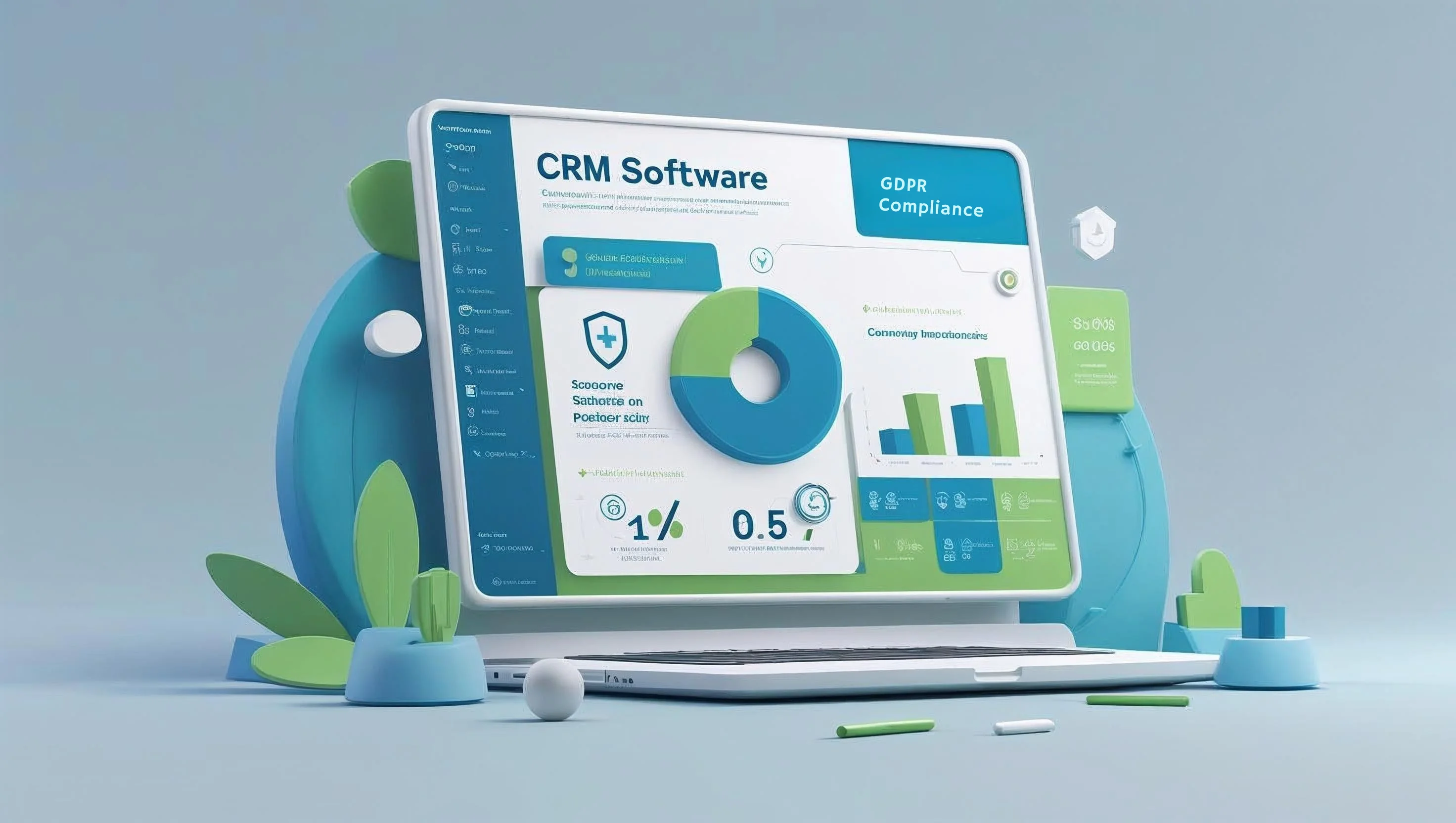Subscribe
Stay Updated
Subscribe to the very latest B2B lead gen updates — only the best bits, none of the fluff!
Is Your CRM GDPR-Compliant? What You Need to Know

In today’s digital-first business world, your CRM system is the nerve center of customer data. But if it’s not handling that data responsibly—or legally—it could put your entire business at risk.
Enter the General Data Protection Regulation (GDPR).
If you operate in the EU, handle EU customer data, or plan to grow globally, GDPR compliance in your CRM isn’t optional—it’s mandatory. And in 2025, as data privacy expectations continue to rise, B2B companies can’t afford to cut corners.
So, what does a GDPR-compliant CRM look like? And how can you make sure yours checks all the boxes?
Let’s break it down.
🔐 What Is GDPR, and Why Does It Matter for CRM Users?
The General Data Protection Regulation (GDPR) is an EU data privacy law that governs how businesses collect, store, and process personal information of EU citizens. It gives individuals more control over their data—and holds companies accountable for protecting it.
If your CRM stores:
Customer names
Email addresses
Phone numbers
Behavioural data or preferences
...then you’re responsible for managing that data in line with GDPR standards.
Non-compliance can lead to fines of up to €20 million or 4% of annual global turnover.
✅ 6 Features of a GDPR-Compliant CRM
1. Explicit Consent Collection
Every contact should have actively opted in before you store or contact them. Your CRM should help you track when and how consent was given.
2. Data Access and Portability
Customers can request access to their data—or ask to transfer it elsewhere. A good CRM lets you export contact records easily and transparently.
3. Right to Be Forgotten
When someone asks to be deleted, your CRM should allow you to fully erase their personal data—no hidden backups or lingering fields.
4. Data Encryption and Security
Stored data should be encrypted, both at rest and in transit. Look for CRM providers that offer robust cybersecurity protocols and regular audits.
5. Audit Trails
GDPR requires accountability. A compliant CRM will log every change made to a contact record—who did what, and when.
6. Data Retention Controls
You shouldn’t keep personal data longer than necessary. Your CRM should allow for automatic data archiving or deletion after a defined period.
Why It’s More Than Just a Checkbox
Sure, GDPR is a legal requirement. But it’s also a trust-builder.
Showing customers that you take data privacy seriously enhances your brand’s credibility. It shows that you respect your prospects—not just their inboxes.
Think of GDPR as part of your customer experience. A compliant CRM isn’t just about avoiding fines—it’s about earning loyalty.
🔍 Is Your CRM Provider Doing Their Part?
Many popular CRM platforms like HubSpot, Salesforce, and Zoho offer GDPR-friendly features—but you’re still responsible for how you use them.
Checklist:
✅ Have you updated your privacy policy?
✅ Do your landing pages and forms collect consent?
✅ Do you regularly audit your CRM for outdated or unnecessary data?
Remember: the tool supports compliance, but your process enforces it.

Making informed tech decisions with Compare Bazaar
Hover to see details
🚀 Final Thoughts
A GDPR-compliant CRM is more than a technical necessity—it’s a competitive advantage.
By managing data transparently and securely, you’re not only protecting your business—you’re respecting your customers.
At Compare-Bazaar.com, we help you compare CRM solutions that align with your compliance goals. Whether you’re just starting out or scaling globally, we’ll help you find a system that keeps your data—and your reputation—safe.
🔗 Ready to find a GDPR-compliant CRM?
Visit Compare-Bazaar.com or reach us at:
- marketing@compare-bazaar.com
- +1 332-231-0404
Where smart choices start.
Stay Updated
Subscribe to the very latest B2B lead gen updates — only the best bits, none of the fluff!
We respect your privacy. Unsubscribe at any time.
SHARE THIS CONTENT
